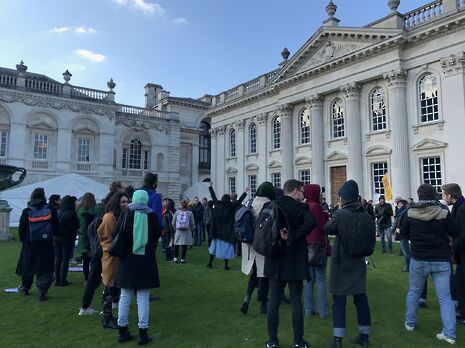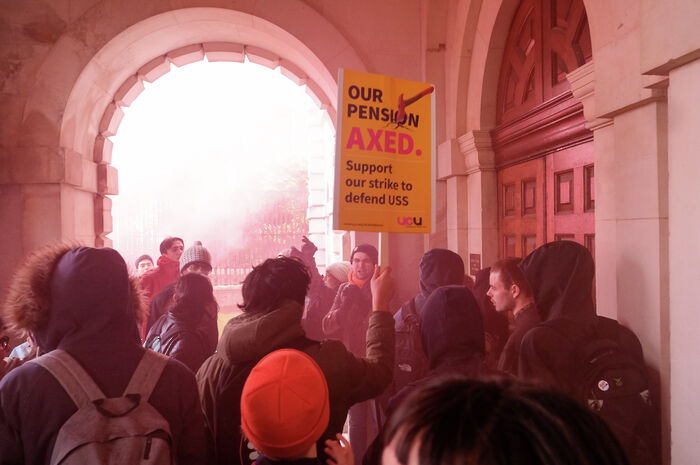Strike pay deducted in one go for hundreds of Cambridge staff
Staff complained they were not informed of the option of opting into a phased deduction

Hundreds of Cambridge academics who took part in the recent staff strikes have had half of their monthly pay docked in one payslip, amid claims that many staff members did not receive information on the deadline for an opt-in process to have their pay incrementally deducted over a three-month period.
Information on the opt-in process failed to reach many staff, as it had only been circulated to certain administrators, heads of department and college bursars, who were then told: “Your help in drawing this to the attention of staff in your area is appreciated”. The email also did not indicate the deadline for opting-in to the system.
Dr Waseem Yaqoob, secretary of the local branch of the University and College Union (UCU), claimed that “hundreds” of staff did not receive the message from the vice-chancellor. Yaqoob told Varsity that many “have faced difficulty paying for rent, mortgage and childcare costs” as a result of the deduction taking place over only one month.
The University announced in March that staff would be able to have their pay deductions phased out over a three-month period, as it had previously been University policy to deduct pay due to strike action from a single month’s payslip. In his statement, Vice-chancellor Stephen Toope said that this concession was made “in order to rebuild and maintain trust” between University staff and administration.
Dr Susanne Hakenbeck, a lecturer in Historical Archaeology, told Varsity she had not received any email, and said “we never received any information from Payroll about when and how they were going to deduct, so I just checked my payslip every month wondering how much money I would have.” She added, “the uncertainty around this has been very stressful”.
Speaking to Varsity, Yaqoob called it “unacceptable and rather pathetic that the management of a university as wealthy as this cannot find a way to communicate directly with their own staff on a matter of policy this important”.
He added that although Cambridge UCU had been aware of the opt-in process and had attempted to communicate it with its members, “it is not up to us to do management’s job for them in implementing a policy explicitly backed by our own VC”.
Many staff therefore opted in to the phasing only after the deadline had passed. As a result, they were docked 14 days of pay at once.
A spokesperson for the University of Cambridge has said that “affected staff have been notified and will be reimbursed in a supplementary payroll run this week”, and that “outstanding deductions will be phased over the remaining period (May and June)."
Yaqoob says that he is “glad” about this. He added, however, that “we should never have got to the point where it was necessary to issue refunds”.
 Interviews / Lord Leggatt on becoming a Supreme Court Justice21 January 2026
Interviews / Lord Leggatt on becoming a Supreme Court Justice21 January 2026 Features / Are you more yourself at Cambridge or away from it? 27 January 2026
Features / Are you more yourself at Cambridge or away from it? 27 January 2026 News / Reform candidate retracts claim of being Cambridge alum 26 January 2026
News / Reform candidate retracts claim of being Cambridge alum 26 January 2026 News / Report suggests Cambridge the hardest place to get a first in the country23 January 2026
News / Report suggests Cambridge the hardest place to get a first in the country23 January 2026 News / Cambridge psychologist to co-lead study on the impact of social media on adolescent mental health26 January 2026
News / Cambridge psychologist to co-lead study on the impact of social media on adolescent mental health26 January 2026










